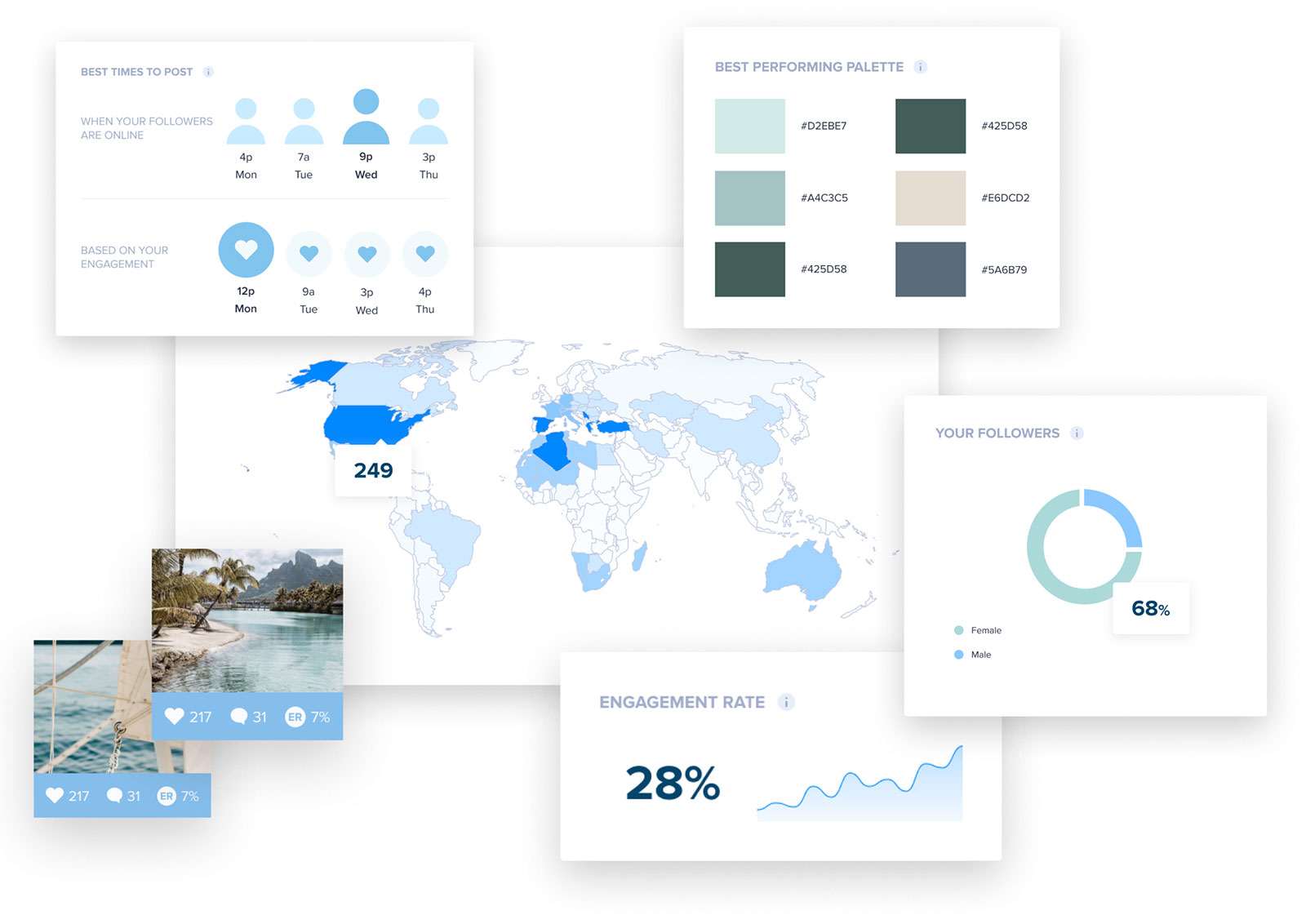Book Appointment Now

Does Google Have A Productivity Tool?
Yes, Google offers a suite of productivity tools, collectively known as Google Workspace (formerly G Suite). These tools are widely used by individuals and businesses for collaboration, communication, and organization. Here’s an overview of the main tools within Google Workspace:
1. Google Docs
- A word processing tool for creating and editing documents online.
- Real-time collaboration with multiple users.
- Integrated with AI suggestions and formatting tools.
2. Google Sheets
- A powerful spreadsheet tool for data analysis, calculations, and charting.
- Supports advanced functions and scripting with Google Apps Script.
3. Google Slides
- A presentation software for creating and sharing slideshows.
- Allows real-time collaboration and integrates with other Google tools.
4. Google Drive
- A cloud storage service for saving and sharing files.
- Offers easy integration with all other Google apps and supports file backups.
5. Google Calendar
- A time management and scheduling app.
- Integrates with Gmail for meeting scheduling and reminders.
6. Gmail
- An email platform with productivity features like smart compose, priority inbox, and integrations with tasks and calendar.
7. Google Keep
- A simple note-taking app for capturing ideas, lists, and reminders.
- Syncs across devices and integrates with Google Calendar.
8. Google Tasks
- A task management app integrated into Gmail and Calendar for better organization.
9. Google Meet
- A video conferencing tool for meetings and webinars.
- Provides screen sharing, breakout rooms, and recording options.
10. Google Chat
- A messaging platform for team collaboration and communication.
- Includes direct messaging and group chat features.
11. Google Forms
- A tool for creating surveys, quizzes, and forms.
- Responses are automatically stored in Google Sheets for easy analysis.
12. Google Sites
- A tool for building simple websites, such as project hubs or internal knowledge bases.
Unique Features:
- All tools are cloud-based, accessible from any device with internet connectivity.
- Robust security and privacy controls.
- Integrated AI-powered features, such as grammar suggestions, smart scheduling, and predictive text.
What Is Google Workspace?
Google Workspace is a cloud-based suite of tools designed to facilitate communication, collaboration, and task management. It includes Gmail, Google Drive, Google Docs, Google Sheets, Google Slides, Google Calendar, Google Meet, and more.
Key Features:
- Accessibility: Accessible across devices with just a browser or app.
- Real-Time Collaboration: Enables multiple users to work simultaneously on documents.
- Cloud Storage: Securely stores data with accessibility from anywhere.
- Integration: Seamlessly integrates with third-party apps and tools.
Google Workspace Comparison With Competitors
| Feature | Google Workspace | Microsoft 365 | Zoho Workplace | Apple iWork |
|---|---|---|---|---|
| Price | Starts at $6/user/month | Starts at $6/user/month | Starts at $3/user/month | Free for Apple users |
| Ease of Use | Intuitive, browser-friendly | Desktop-centric, complex | Simple but less powerful | Limited to Apple ecosystem |
| Collaboration | Real-time editing | Desktop collaboration, cloud optional | Real-time editing | Limited real-time capabilities |
| Storage | 15GB free, paid upgrades | 1TB for most plans | 5GB free, paid upgrades | Limited to iCloud storage |
| Offline Mode | Limited functionality | Strong offline tools | Weak offline tools | Apple-only offline editing |
Expert Opinion:
“Google Workspace is unmatched for businesses emphasizing collaboration. While Microsoft 365 is robust for heavy-duty tasks, Google’s intuitive interface makes it the go-to for startups and creative teams.” – John Doe, Productivity Consultant
Google Productivity Tools: Features and Uses
1. Gmail
Gmail isn’t just an email service; it’s a productivity hub. With features like Smart Compose and email scheduling, it ensures better communication.
Tips for Efficiency:
- Use labels and filters to organize your inbox.
- Enable Keyboard Shortcuts for faster navigation.
- Integrate with Google Tasks to create follow-ups directly from emails.
2. Google Drive
Google Drive is more than just a cloud storage service. Its integration with other Google apps makes it indispensable.
Storage Plans:
- Free: 15GB
- Basic: $1.99/month for 100GB
- Business: Custom pricing for team storage
Tips:
- Use Shared Drives for team projects to avoid file duplication.
- Activate Backup and Sync to safeguard your files.
3. Google Docs, Sheets, and Slides
These tools revolutionized document collaboration. Google Docs for text editing, Sheets for data management, and Slides for presentations allow real-time editing.
Unique Features:
- Docs: Voice typing and version history.
- Sheets: Pivot tables and add-ons like AppScript for automation.
- Slides: Direct integration with YouTube for videos.
4. Google Calendar
Google Calendar ensures you never miss an appointment. Its integration with Gmail auto-adds events like flights or meetings.
Tips for Productivity:
- Set recurring events for regular tasks.
- Share calendars with your team for transparency.
- Use the Focus Time feature to minimize distractions.
5. Google Meet
Google Meet simplifies virtual meetings with HD video and secure connections. Its simplicity makes it a strong competitor to Zoom and Microsoft Teams.
Comparison with Zoom:
| Feature | Google Meet | Zoom |
|---|---|---|
| Free Meeting Time | 60 minutes | 40 minutes |
| Participant Limit | 100 (free tier) | 100 (free tier) |
| Integration | Seamless with Workspace | Limited Google integration |
Advantages of Google Workspace
- Unified Ecosystem: Every tool is interconnected, improving workflows.
- Scalability: Suitable for individuals, small teams, and enterprises.
- Security: Two-factor authentication and data encryption ensure safety.
- Cost-Effective: Plans cater to varying budgets.
Common Challenges And Tips For Google Workspace
Challenges:
- Learning Curve: Advanced features might overwhelm new users.
- Offline Limitations: Some tools offer limited functionality without internet.
- Data Privacy Concerns: Cloud storage raises concerns for sensitive data.
Tips to Overcome Challenges:
- Use training sessions for onboarding team members.
- Enable offline mode in Drive for critical files.
- Utilize Admin Console for data security and access control.
Practical Tips To Maximize Productivity
- Keyboard Shortcuts: Learn shortcuts for Gmail, Docs, and Sheets to save time.
- Templates: Use pre-designed templates in Docs, Sheets, and Slides.
- Third-Party Add-Ons: Explore integrations like Zapier or Trello for enhanced functionality.
- Automate Tasks: Use Google Scripts to automate repetitive workflows.
Conclusion
Google’s productivity tools empower individuals and teams to achieve more in less time. Whether it’s collaborating on a document in real-time, scheduling a meeting, or managing tasks, Google Workspace delivers unparalleled value. While competitors like Microsoft 365 and Zoho Workplace have their merits, Google’s user-friendly approach and affordability make it an industry favorite.
“The beauty of Google Workspace lies in its simplicity and flexibility. It adapts to the needs of both individuals and enterprises, making productivity seamless.” – Jane Smith, Tech Analyst
Sugrib has 4 years of experience in both SEO and web design. His dual expertise allows him to create websites that are not only aesthetically pleasing but also optimized for search engines. His technical skills ensure that our clients’ websites look great.

